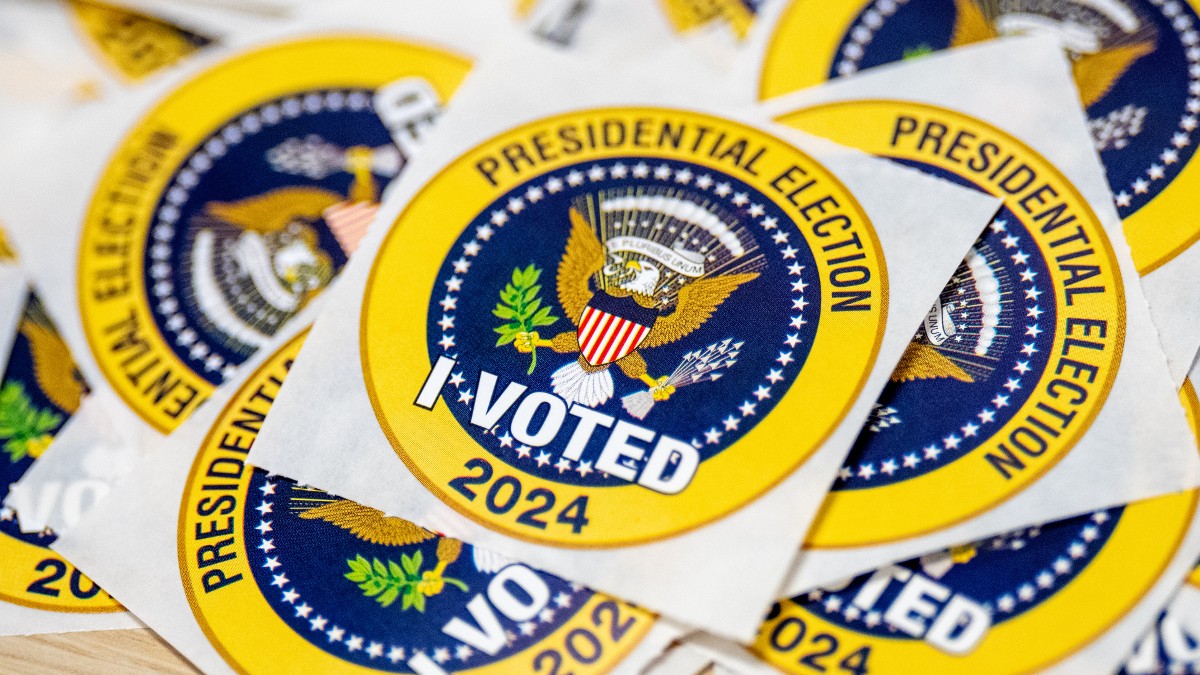‘Very troubling sign for voting rights’: SCOTUS sparks fears by reinstating Virginia’s purging of voter rolls days before the election

The Supreme Court has raised concerns after siding with Virginia in its desire to purge voter registration rolls just days before Election Day despite violating the National Voter Registration Act.
With Election Day on the horizon, Virginia has been fighting to purge 1,600 “suspected” noncitizens from voter registration rolls. The move is an arbitrary attempt to prevent noncitizens from voting in the election. Republicans have consistently pushed a false narrative that voter fraud and noncitizens voting in the U.S. election are a major issue, even though such a phenomenon is extremely rare because there already are effective laws in place to prevent it. The false narrative has been used as an excuse to purge voter registration rolls of alleged noncitizens and to enforce voter photo ID laws. Meanwhile, these arbitrary measures only threaten to provide obstacles for citizens to vote legally.
Such is the situation in Virginia, where state officials have been cleared to purge voter registration rolls without verifying that the individuals being purged are noncitizens.
The Supreme Court sides with Virginia in voter rolls purge
In August, Virginia Governor Glenn Youngkin issued an executive order to remove 1,600 individuals from voter registration rolls whom his administration claimed were noncitizens. However, the Justice Department filed a lawsuit against Virginia, claiming the purge was implemented too close to Election Day. The suit also claimed to have found eligible citizens among the list of those Youngkin intended to purge. If there are citizens among the 1,600 voters, the order violates the National Voter Registration Act, which prohibits the removal of citizens from voter registration rolls within 90 days of the election. A lower court sided with the Justice Department and blocked Youngkin’s order, although he appealed the decision.
On October 30, the Supreme Court ruled in Youngkin’s favor, clearing the way for Virginia to continue its purge of the voter rolls just six days before the election. The decision was made by the court’s conservative majority, while all three liberal judges opposed the reinstatement. Meanwhile, the conservative judges did not provide their reasoning for reinstating the order.
The decision has raised concerns, given that the 1,600 purged voters are only “suspected” or “alleged” to be noncitizens. Election officials compiled this list by matching individuals who identified as noncitizens at the DMV against voter rolls. Every perceived match is removed from voter rolls, even though Youngkin’s administration has failed to verify that these individuals are, indeed, noncitizens. It’s believed that some qualified citizens were wrongfully purged, while there isn’t verifiable proof that the others are noncitizens.
On social media, one user, Ari Berman, noted the decision is a “very troubling sign for voting rights.” Given fears that Trump may try to steal the election, the Supreme Court’s decision on the Virginia matter hasn’t assured voters that the conservative-led court will protect the integrity of the election. Social media users noted that those who may have been wrongfully removed from Virginia’s voter roll can re-register under same-day registration and still vote. However, those wrongfully removed may experience obstacles if they intend to vote absentee by mail.
Ultimately, the Supreme Court’s ruling is deeply concerning. Noncitizens have never been allowed to vote in elections, and this would have remained true whether or not Youngkin’s order was instated. The only thing the order may do is potentially purge eligible voters based on nonverifiable information, creating needless obstacles to citizens voting.
Have a tip we should know? tips@themarysue.com